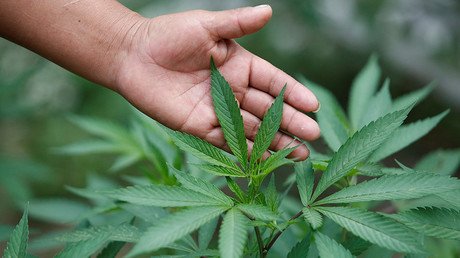Festive feeling leads to rise in September babies – study

It’s official: we do have more sex at Christmas and that’s why September babies outnumber those born during the rest of the year, according to joint US-Portuguese research.
A team from Indiana University and the Instituto Gulbenkian de Ciência in Portugal has discovered that, rather than being linked to seasonal changes in human biology as previous studies have suggested, high September birth-rates are seemingly cultural.
Scientists used the “collective unconscious” of web searches and social media posts to reach their conclusions. “The rise of the web and social media provides the unprecedented power to analyze changes in people's collective mood and behavior on a massive scale,” study author Luis M. Rocha said.
Survey attempts to gauge what people in 7 European countries consider to be sexual #harassmenthttps://t.co/RsYOhP1XJUpic.twitter.com/EOigdpOoQQ
— RT America (@RT_America) November 11, 2017
Rocha means it when he says “massive scale.” The team looked at data from nearly 130 countries, peering into our Google search terms over a 10-year period from 2004-2014. They also studied 10 percent of Twitter posts from late 2010 to early 2014.
“This study is the first 'planetary-level' look at human reproduction as it relates to people's moods and interest in sex online,” Rocha added. Upon analysing the troves of data, the team found that our collective interest in sex peaks around the holiday season.
Well obviously, when it’s cold outside and cosy inside people are getting loved up. But the team’s analysis also revealed that in Muslim-majority countries search terms including some derivatives of the word sex, peaked at Eid-al-Fitr, the celebration that marks the end of Ramadan, with birth-rates peaking nine-months later.
This is significant because Eid occurs at a different time each year and birth rates adjusted accordingly: “We didn't see a reversal in birth rate or online interest in sex trends between the Northern and Southern hemispheres – and it didn't seem to matter how far people lived from the equator,” Rocha said. "Rather, the study found culture – measured through online mood – to be the primary driver behind cyclic sexual and reproductive behavior in human populations.”
Marijuana smokers have more sex, researchers discover https://t.co/FMPnf4HTxKpic.twitter.com/HEbRBl7vjQ
— RT (@RT_com) October 28, 2017
Furthermore the researchers posit that because most people tend to feel “happier, safer and calmer” during holiday periods, they may feel more of a drive to procreate.
“We observe that Christmas and Eid-Al-Fitr are characterized by distinct collective moods that correlate with increased fertility," Rocha said. "Perhaps people feel a greater motivation to grow their families during holidays when the emphasis is on love and gift-giving to children. The Christmas season is also associated with stories about the baby Jesus and holy family, which may put people in a loving, happy, 'family mood.”














